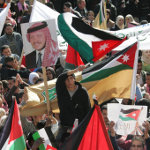After months of civil society advocacy, King Abdullah recently promulgated a new electoral law in preparation for fall elections to replace the parliament dissolved in November 2009. To the dismay of local reformers, the revised law maintains the controversial one-man one-vote system in which a citizen may vote for only one candidate. And while the law does change the way electoral districts are formed, gerrymandering remains a major concern.
The new law raises the number of Lower House seats from 110 to 120 and maintains the one-man one-vote electoral mechanism that reformers say has produced tribal representatives with purely local concerns. The new law also renames districts “electoral zones.” Each electoral zone is divided into single-seat sub-districts, with the total number of seats for the electoral zone equivalent to the number of seats controlled by the old districts, except for the four electoral zones where seats were added. For example Amman’s third district had 5 seats. Under the new law, that same district is divided into 5 sub-districts. The government says the new system is meant to curb tribalism because it does not specify geographical boundaries for the sub-districts. Voters will be registered in electoral zones, and they will be able to vote for candidates running in any of their electoral zone’s sub-districts. Candidates, on the other hand, must choose one sub-district in which to run and will supposedly not be able to determine who will vote in their chosen sub-district.
Some political analysts reject the government’s contention that the new system will curb tribalism. Instead, they predict that with smaller sub-districts, candidates will now rely more on their tribal affiliations and campaign among a smaller pool of core familial voters than before. Meanwhile, tribes are expected to try to divide seats among themselves prior to the election, potentially inflaming tensions within and among tribes. Emboldened by the government’s long-time policy of appeasement, some of these tribes have been acting as though they are above the law. Other analysts contend that the Muslim Brotherhood's Islamic Action Front, Jordan's strongest and best-organized political party, is also well positioned to work the system to its advantage.
The expanded parliament includes four additional seats for the cities of Amman, Zarqa, and Irbid. The seats were not added to adjust for population changes, but to address at least in part one of the key demands set forth by reformers. Reformers have long called for adjusting the apportionment of seats, which tend to be skewed toward the most tribal, rural, and lightly populated areas—where support for the government is strong—and against densely populated urban areas where Islamists and Jordanians of Palestinian origin tend to live. The increase would also set aside 6 additional seats for women; raising the level of female representation in parliament to 9 percent, the average level in other Arab countries.
Public reaction to the new law was muted; Jordanians remain uninformed about electoral options and the inadequacy of the current system. Moreover, even among reformers there is no consensus on the best electoral system to adopt and therefore no clear message that might be translated into awareness campaigns to educate the electorate. While the 2005 National Agenda commission mandated by the King to set reform priorities recommended a mixed system that retained district representation but introduced proportional representation and party lists, the exercise itself was limited to a group of royally appointed members of the political elite and there was no effort to educate citizens about the Agenda’s content. A poll conducted by the Jordan Center for Strategic Studies in 2007 revealed the gaps in the public’s understanding. While those polled gave the most favorable rating to the 1989-1993 parliament chosen through a block voting system (in which each voter cast as many votes as there were seats in the district) and the least favorable ratings to the parliaments chosen through the one-man one-vote system, they were nonetheless unable to say clearly which would be the best electoral system for Jordan.
Identity politics also played a role in shaping public reaction to the new electoral law. The traditional East Bank elite, the political base of the monarchy, is concerned that the Palestinian issue might ultimately be resolved on Jordanian soil and therefore tries to prevent reforms that might enhance the political clout of Jordanian-Palestinians and of displaced Palestinians. Just before the law was unveiled, the National Committee for Retired Servicemen (a committee elected by retired army officers) issued a statement accusing the government of succumbing to U.S. and Israeli pressure to settle Palestinians in Jordan. The timing of the statement suggests that it was intended to warn reformers not to push too hard for electoral changes. But the identity politics issue should not be exaggerated. There is neither reliable census data showing the size of various communities within Jordan nor polling on where they stand on this, yet various factions continue to try to play the demographic card.
Taking into account concerns about the role of Jordanians of Palestinian origin and Islamic activism, the government still could have done more to reform the electoral law without challenging the status quo of a docile parliament with limited legislative and oversight powers. It might have made a small concession, for example accepting reformist demands to return to a mixed electoral system. Adding even 10 seats to the parliament to be selected by proportional representation, as suggested by prominent journalist Jamil Nimri, who is planning to run in the upcoming election, would have given political parties and tribal leaders alike an incentive to work collectively on policy platforms. This change would not have altered the demographic makeup of parliament but would have been a positive step toward supporting a democratic culture and matching the government’s reform rhetoric with concrete action.
Dima Toukan Tabbaa is a Jordan-based consultant.






